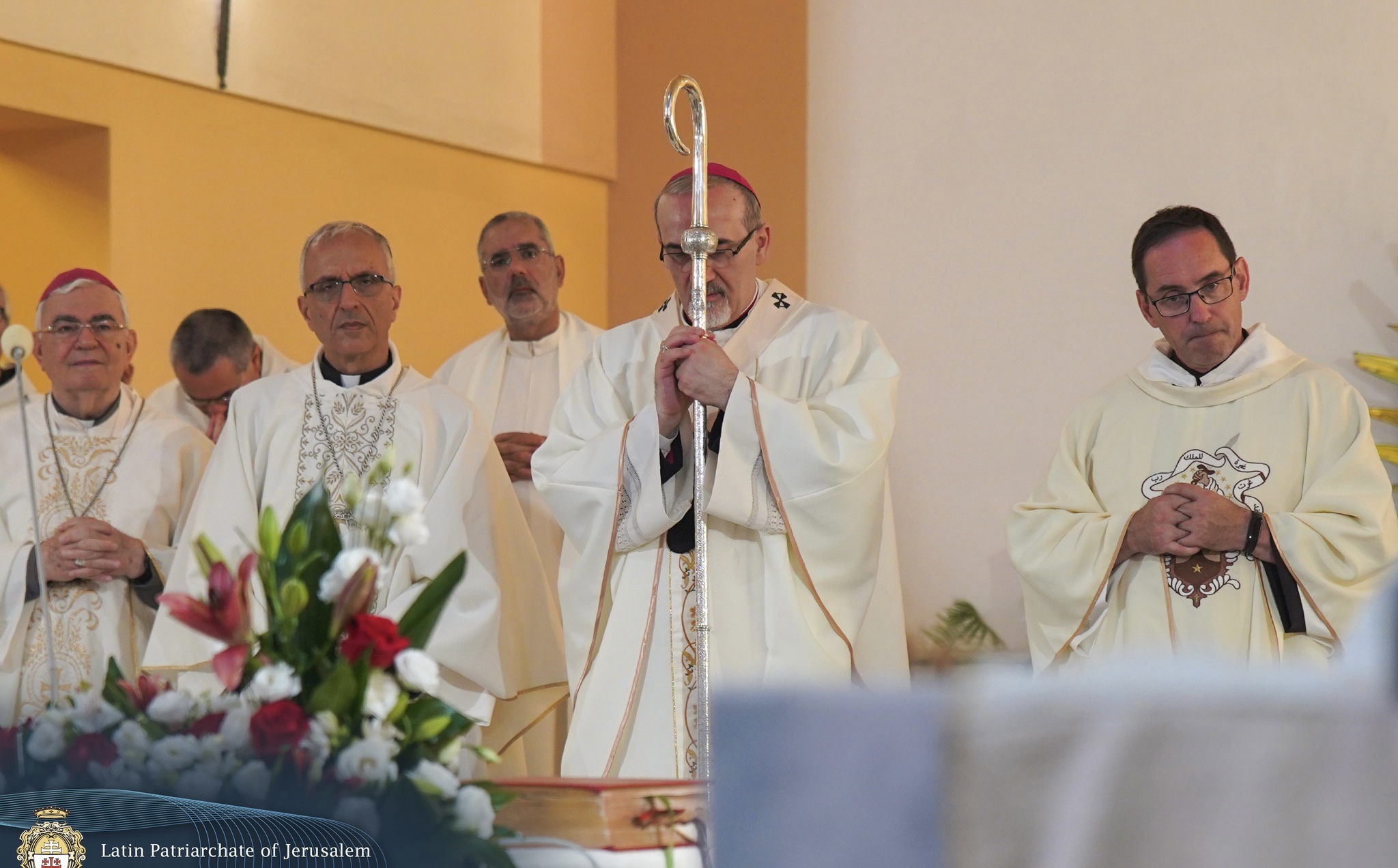Newly appointed Cardinal Pizzaballa visits Jenin, a people stunned by violence but ‘resilient’
The Latin Patriarch of Jerusalem will get his scarlet cassock on 30 September. Today he visited the Palestinian city at the centre of the latest violence. While life appears normal, he “found people stunned” yet “also resilient,” not “particularly resigned” with “no differences between Christians and others". His appointment is a sign that the pope is concerned about the local Church, which is a “small light” in a “blessed yet tormented land”.
Milan (AsiaNews) – At the end of yesterday’s Angelus Pope Francis announced the appointment of new cardinals at the consistory on 30 September, on the eve of the synod.
One of them is Archbishop Pierbattista Pizzaballa, Patriarch of Jerusalem of the Latins, who spoke to AsiaNews by phone soon after he returned home in the Holy Land.
"In Jenin I found a situation of apparent normality, but I am still very shaken by what happened,” His Beatitude said; however, he also found the people “very resilient” despite last week's violence and Israel’s massive military operation.
His elevation to the cardinalship confirms the pontiff’s concern for what is happening in the Holy Land, and the ongoing conflict between Israelis and Palestinians.
Today, during his visit to the city of Jenin, the patriarch said that, "even during the Second Intifada", the city was caught up in violence, perhaps because "it is the symbol of Palestinian resistance and is somewhat isolated.” This may explain the tensions.
During his visit, the cardinal designate met with “the local Christian community, local authorities, both civic and Muslim religious leaders.” During his stay, he went “to the refugee camp, to the hospital,” and saw directly “various local groups”.
“I found people under shock, hurt by what happened, bewildered, angry but also resilient. I did not find them particularly resigned.” To this extent, "there are no differences between Christians and others.”
For the patriarch, his appointment shows how the pope cares “about the Church in the Holy Land and Jerusalem," its mission to engage others in dialogue, reach out to them, open to universality, to its history and its current and past wounds.
This is “a small light in this blessed and tormented land,” said the cardinal designate.
Like his red cassock, this part of the world has seen a lot of red, as in the blood shed in various conflicts, but also the red of passion that must help serve others and renew one’s work in one’s ecclesial community.
Last week the patriarch issued a statement following events in Jenin, which also affected the local Catholic parish. “We condemn this violence,” he said, “demand a cease-fire, and hope for the pursuit of peace and dialogue to prevent other future unjustified attacks on the population.”
Archbishop Pizzaballa is the first Latin patriarch of Jerusalem to get the scarlet cassock, except for one in the early 20th century, who after the consistory in which he was appointed did not live in the holy city.
Born in 1848 in Rome (then capital of the Papal States), Archbishop Filippo Camassei became patriarch on 6 December 1906 but was exiled to Nazareth by the Turks in 1917, taken in by Franciscans.
He returned to Jerusalem in November 1918, and then travelled to Rome the following year for his elevation to the rank of cardinal on 15 December 1919. He never returned to Jerusalem as a cardinal because 13 months later, while still in his hometown, passed away suddenly at the age of 73.
This is why the current Latin primate can be considered the first patriarch of the "mother" Church for Christians around the world to receive the biretta in a land that is holy but at the same time torn by divisions, violence, blood and confessional hatred.
In choosing Pizzaballa, the pope is sending a signal indicating that he is very much interested in what is happening in this part of the world and that the Latin Patriarchate can play a crucial role in governing the global Church.
Likewise, even before yesterday’ Angelus and the announcement of the consistory, the pontiff called for dialogue between the warring parties.
The new appointment comes at a complicated time for Christians in the Holy Land, who are increasingly victims of aggression, abuse, hatred and outrages by Jewish settlers and the most extremist fringes of Israel’s right-wing and orthodox community.
Born in Cologno al Serio, Bergamo (Italy), on 21 April 1965, Pierbattista Pizzaballa left his home town very young to study in Bologna. He took perpetual vows in the Order of Friars Minor (Franciscan) in 1989 and was ordained deacon on 27 January 1990 and priest on 15 September of the same year.
He arrived in the Holy Land in 1999 and was elected Custos a first time in May 2004, re-elected on 22 March 201, and reconfirmed for another three-year term until 2016. On 24 June 2016, he was appointed apostolic administrator when then Patriarch Fouad Boutros Twal resigned upon reaching the age limit of 75.
The cardinal designate became the tenth Latin patriarch of Jerusalem in 2020 , and for the past three years, he has led a community that for almost 40 years was administered by Arab prelates, namely the Palestinian Michel Sabbah and Jordanian Fouad Twal.
The patriarchate’s jurisdiction applies to Latin-rite Catholics living in Israel, Palestine, Jordan and Cyprus, an area divided in 71 parishes and six vicariates with its seat in Jerusalem.
* Photo/Latin Patriarchate of Jerusalem







.png)










